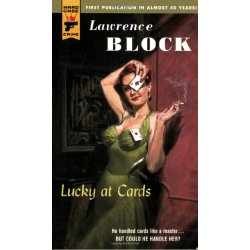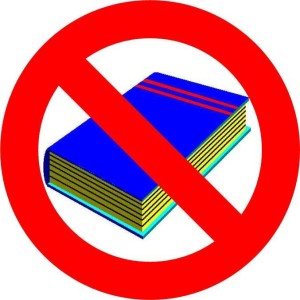My last topic here was on The Self-Pub Adventure. Here are my conclusions so far.
Category Archives: Dorchester Publishing
The Demise of Mass Market Paperbacks?
Recently, Dorchester Publishing, one of the country’s oldest mass market publishers, announced that it is abandoning traditional print books in favor of digital format and print on demand.
That announcement reminded me of a conversation I had with an editor at a conference a few months ago. She predicted that in the coming digital shakeup, hardcover print runs would be smaller, trade paperbacks would boom, and mass market books would vanish entirely.
I was skeptical. After all, the great thing about mass market books is that they remain almost as cheap (or cheaper) than digital downloads, and they’re ideal reading material for all of those places you wouldn’t take your Kindle/iPad: the beach, the tub, the pool. So why would this be the first format to fall to the digital ax?
The fact that Dorchester is the first to make this shift is particularly bad news for Hard Case Crime, the imprint that has revitalized the pulp fiction industry with semi-ironic works  by major novelists such as Ken Bruen and Stephen King. Going digital stands in stark contrast to what publisher Charles Ardai was attempting to achieve–a return to the era of dime store novels you could tuck in your pocket. (On a side note, how ironic is it that Ardai, who made his money via the dotcom boom, is deadset on producing books in print?) In response to the Dorchester move, he’s apparently considering moving the entire imprint to a different publisher.
by major novelists such as Ken Bruen and Stephen King. Going digital stands in stark contrast to what publisher Charles Ardai was attempting to achieve–a return to the era of dime store novels you could tuck in your pocket. (On a side note, how ironic is it that Ardai, who made his money via the dotcom boom, is deadset on producing books in print?) In response to the Dorchester move, he’s apparently considering moving the entire imprint to a different publisher.
I was encouraged to see that in the article, a representative from Random House expressed faith in mass paperbacks. These days, most midlist and debut authors are only offered a mass market release. If that shifts entirely to digital content, it would be a shame. For me, the best part of the publishing process was the day that I opened a box to find a stack of novels with my name on the cover. I’m not sure that opening a pdf file would convey the same thrill.
So what does everyone think? Are mass markets the new eight tracks?

